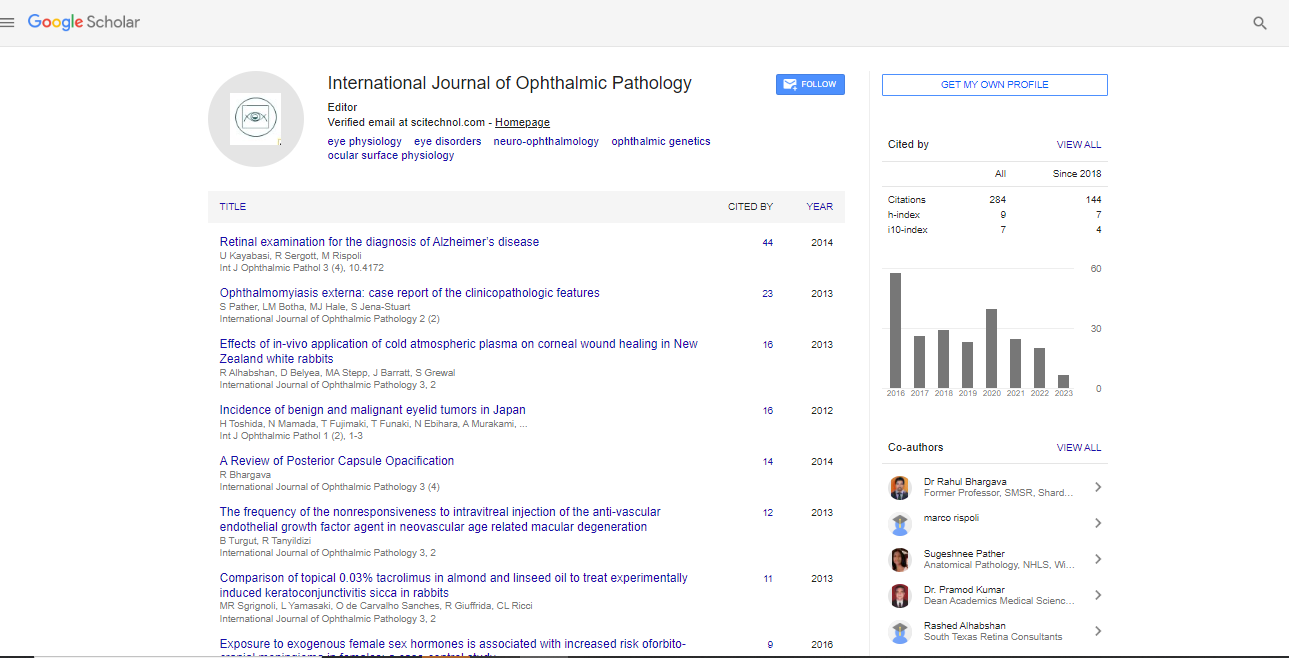Research Article, Int J Ophthalmic Pathol Vol: 2 Issue: 4
The Frequency of the Nonresponsiveness to Intravitreal Injection of the Anti-Vascular Endothelial Growth Factor Agent in Neovascular Age Related Macular Degeneration
| Burak Turgut* and Rumeysa Tanyildizi | |
| Department of Ophthalmology, School of Medicine, Firat University, Elazig, Turkey | |
| Corresponding author: Burak Turgut Associate Professor of Ophthalmology, Firat University School of Medicine, Department of Ophthalmology, Elazig, Turkey Tel: +90 424 2333555; Fax: +90 424 2388096 E-mail: drburakturgut@yahoo.com |
|
| Received: January 03, 2012 Accepted: May 10, 2013 Published: May 17, 2013 | |
| Citation: Turgut B, Tanyildizi R (2013) The Frequency of the Nonresponsiveness to Intravitreal Injection of the Anti-Vascular Endothelial Growth Factor Agent in Neovascular Age Related Macular Degeneration. Int J Ophthalmic Pathol 2:3. doi:10.4172/2324-8599.1000119 |
Abstract
Age-related macular degeneration (AMD) is a major cause of irreversible visual loss in developed countries in 65 years and older. The two types of AMD are non-neovascular type and neovascular type. Neovascular AMD is characterized by choroidal neovascular membrane (CNVM) that is due to the formation of abnormal blood vessels, which grow from the choroid into or under the retina. Although CNVM is present in only 10% of patients with AMD, it is responsible for 90% of cases with severe vision loss from hemorrhage and fibrosis. The pathogenesis of CNVM is a complex process involving the disturbance between proangiogenic and antiangiogenic factors. The vascular endothelial growth factor (VEGF) that released by retina pigment epithelium cells (RPE) is the most important of the angiogenic factors to stimulate the growth of new vessels. The formation of CNVM in AMD has been shown to be related to increase levels of VEGF. Anti-VEGF agents have drammatically improved the prognosis of patients with neovascular AMD.
 Spanish
Spanish  Chinese
Chinese  Russian
Russian  German
German  French
French  Japanese
Japanese  Portuguese
Portuguese  Hindi
Hindi 